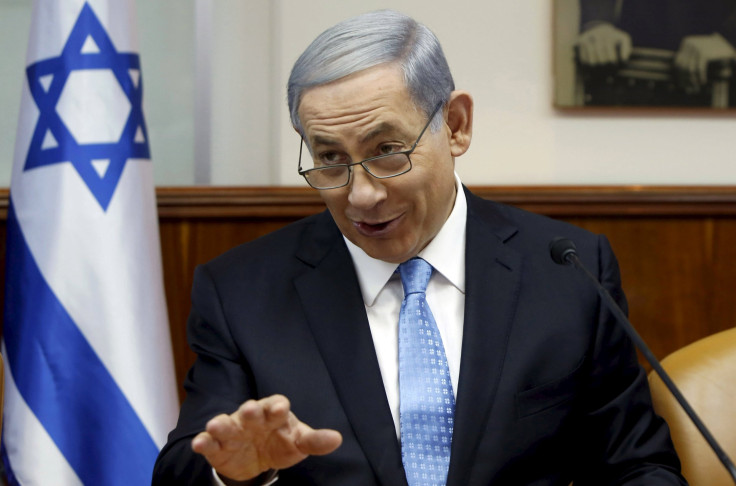Benjamin Netanyahu United Nations Live Stream: Watch The Israeli Prime Minister Address Leaders At General Assembly

When Israeli Prime Minister Benjamin Netanyahu addressed the United Nations three years ago, he held up an image of a cartoon bomb and drew a red line through it. His message was clear: prevent Iran from obtaining a nuclear weapon. During the Israeli leader’s address to the U.N. Thursday, he was expected to once again talk about the dangers of Iran. The issue of Palestine also was expected to form a large part of the speech.
The United Nations Web TV service will live stream Netanyahu's remarks, which are slated to begin a little before 1 p.m. EDT. Netanyahu is expected to talk about the Iran nuclear deal, which Israel bitterly opposed when it was signed by the U.S. and five other countries earlier this year. With U.S. President Barack Obama and Netanyahu expected to meet in November, Thursday’s speech will likely contain some of the main talking points leading into the meeting, according to a report by New York Times.
The Israeli leader is also expected to speak broadly about terrorism in the region, while mentioning the Hamas’ negative role in Palestine, which he claims is undermining peace. Netanyahu's speech comes a day after Palestinian President Mahmoud Abbas made disparaging remarks about Israel.
"You are all aware that Israel undermined the efforts made by the administration of President Barack Obama in past years,” said Abbas during his U.N. speech. “most recently the efforts of Secretary of State John Kerry aimed at reaching a peace agreement through negotiations.”
In response, Netanyahu's office said that Abbas' speech was "deceitful and encourages incitement and lawlessness in the Middle East."
A U.S. administration official said that Abbas had reaffirmed his commitment to a two-state solution, an aim shared by the United States. "We will continue to look to the Israeli and Palestinian governments to demonstrate, through policies and actions, a genuine commitment to a two-state solution," the official said, according to Reuters.
© Copyright IBTimes 2024. All rights reserved.












